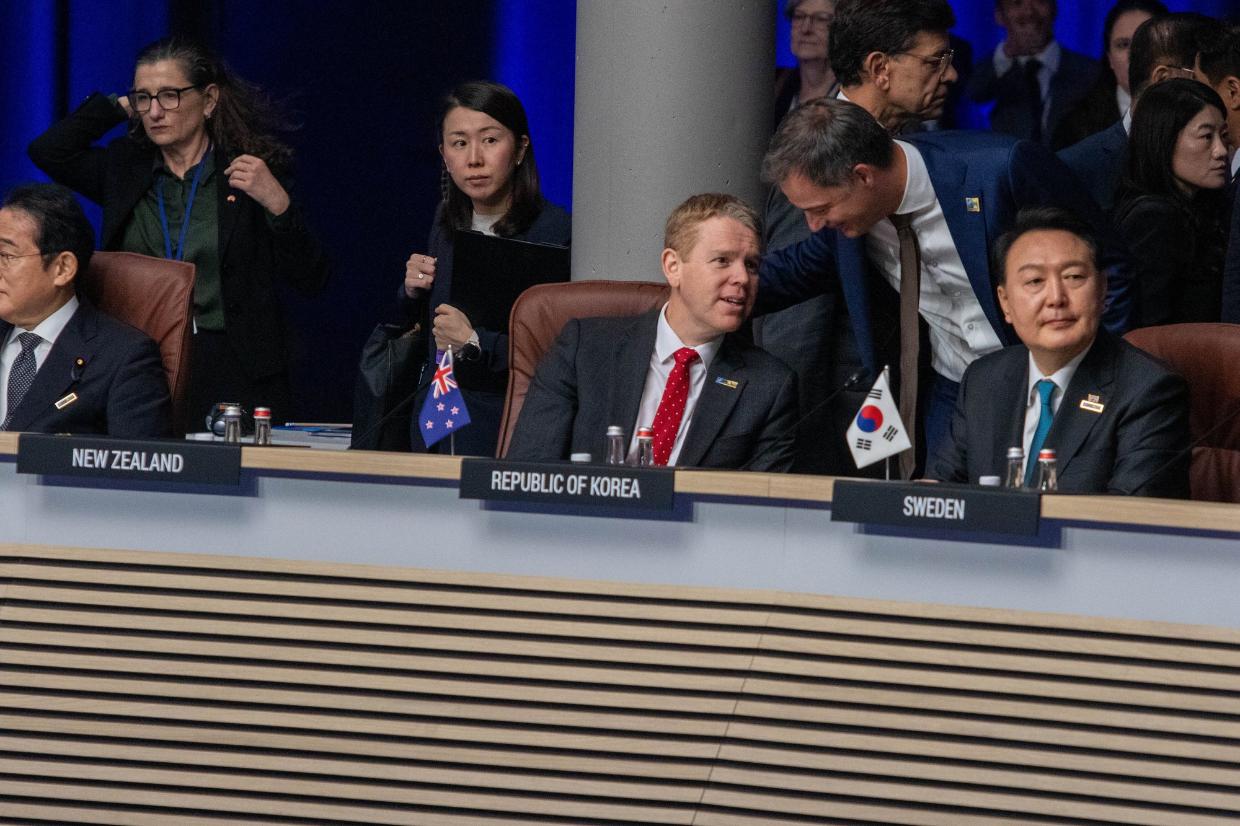Prime Minister Chris Hipkins has told Nato leaders New Zealand remains committed to working with the military alliance on security threats, in a speech delivered at a summit in Vilnius, Lithuania.

Hipkins attended the second day of a Nato leaders summit late on Thursday evening, NZ Time, speaking at a meeting of the 31 North American and European nations that make up the military alliance and its Asia-Pacific partners, including Australia, Japan, and South Korean.
“Threats to our security and resilience are not just regional, they are also global,” he said.
“Geography, therefore, does not determine or constrain our interests and we must have like-minded partners near and far.”

He echoed Prime Minister Jacinda Ardern, who spoke at the same summit in 2022, in saying the Pacific “bears the scars of nuclear testing”, and promised to “continue our tireless efforts” to promote a ban on nuclear weapons.
But he did not reiterate Ardern’s call that Ukraine’s war against a Russian invasion should not become an “arms race”, though he had said as much in a speech before leaving for Europe, last week.
Nato leaders this week have discussed the extent they are hiking defence spending to prepare for threats of conflict.
READ MORE
- China to NZ: Don’t open door to the devil
- PM Chris Hipkins misses chance for bilateral meeting with Ukraine President Volodymyr Zelenskyy
- “We can’t be passive”: New Zealand’s changing tone about a more worrying world
- Why is Nato expanding its reach to the Asia-Pacific region?
Hipkins said, while in Beijing weeks ago, he “encouraged China to play a constructive role, by using its access and influence with Russia to seek a peaceful resolution to the conflict”.
Hipkins was due to meet Ukrainian Prime Minister Volodymyr Zelenskyy later that afternoon.
At the end the summit’s first day, he said Russia’s invasion of Ukraine was the dominant issue for Nato leaders, and New Zealand’s support for Ukraine had been “warmly welcomed”.

“While this conflict has been going on for some time, there is absolutely no weakening of the resolve when it comes to Europe's support for Ukraine, and making sure that they win this battle and that they come out the other side stronger.”
Throughout the day, Hipkins met leaders including German Chancellor Olaf Scholz, Norwegian Prime Minister Jonas Store, French President Emmanuel Macron, and Lithuanian Prime Minister Ingrida Simonyte.
"New Zealand has a role to play here, and the bilateral conversations that we have are part of a much larger whole. Clearly, I think that the global community is rallying around Ukraine. We all acknowledge that we all have a stake in this conflict,” he said.
Zelenskyy, before arriving in Vilnius part-way through the summit’s first day, pushed Nato leaders to progress a 2008 promise to have Ukraine join the alliance, by putting forward a timeline or invitation.

“It’s unprecedented and absurd when the timeframe is not set neither for the invitation nor for Ukraine's membership,” he said. “It seems there is no readiness to neither invite Ukraine to Nato nor to make it a member of the alliance.”
While Nato countries all agree Ukraine will join, an invitation or timeline for this has not been endorsed by all.
Ultimately, they agreed on outcome statement from their meeting did not include an invitation or timeline, but a package to support Ukraine’s aspirations and simplify its accession when the time comes.

“We will be in a position to extend an invitation to Ukraine to join the alliance when allies agree and conditions are met,” it read.
Zelenskyy, who spoke to a flag-waving crowd in Vilnius that afternoon, remained critical. He said he wanted his “faith” in “a Nato that does not hesitate, does not waste time” to become ”confidence”.
Hipkins said he did not want to “get into conversations that Ukraine is having with Nato”.
“I'm hoping to have the opportunity to meet with President Zelenskyy whilst I'm here. I'm sure that we'll have some useful and constructive discussions.”

